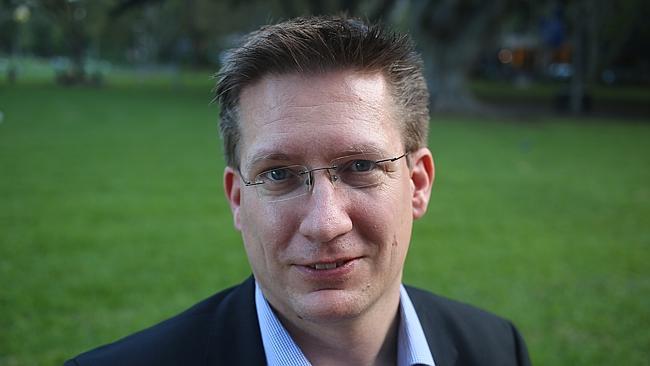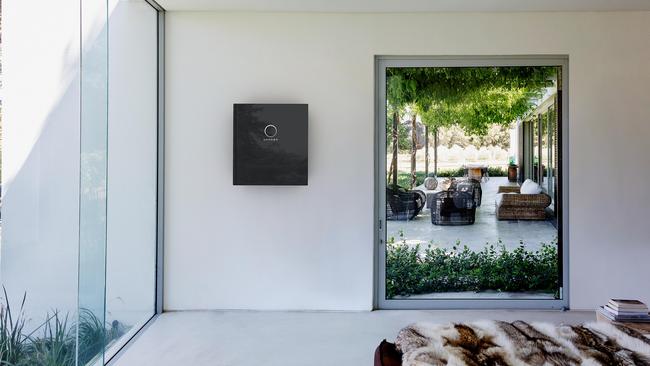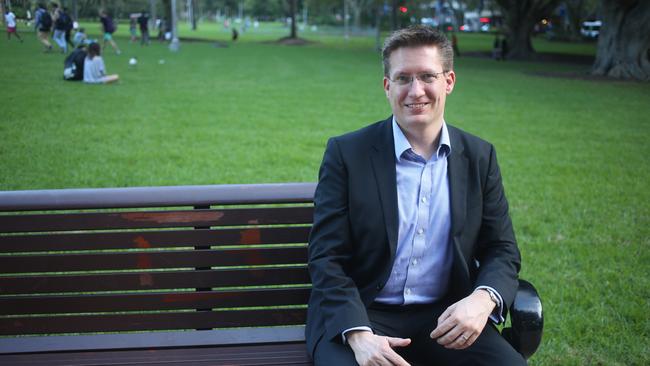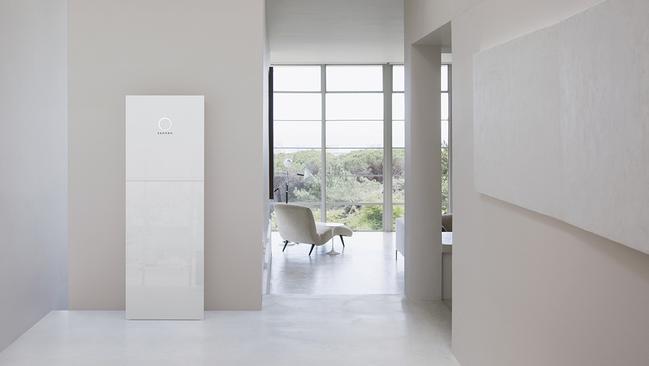Sonnen takes the fight to Tesla
A German company is taking on Tesla and Redflow by offering Australians home batteries with in-built intelligence systems.

A German company is taking on Elon Musk’s Tesla Powerwall and Australia’s Redflow by offering home batteries systems with in-built intelligence.
Australians from today can buy Sonnen energy systems that not only store solar energy for later use, but come with a potential for selling power to other Sonnen users across the grid.
Managing director Oliver Koch who is visiting Australia said the company was formed 6 years ago in the small Bavarian village of Wildpoldsried, which is centred around a rural community. It has a history of green conservative politics
“This is not hip Sydney or Melbourne, it is very conservative but conservative farmers say ‘we need to change the way we produce energy’,” he told The Australian. “The village now produces five times more energy than it consumes.”
The company’s two entrepreneurial founders sought to retrofit petrol powered car so they could become electric but abandoned the idea in favour of building energy storage systems.
Six years on, and the company employs 160 people: 40 in research and development and 40 in manufacture and sales. It has subsidiaries in the US, UK and Italy, and now in Australia.
Sonnen has sold more than 11,000 battery units worldwide. They cost from $10,000 to $20,000, come with an inverter for converting DC to AC power and are available as 2 kWh to 16 kWh systems, in 2 kWh increments.

Like its rivals, Sonnen systems are designed to store solar energy for later use or where appropriate load it to the grid. Sonnen says its intelligent software can work out when certain appliances can run at home. Users can also configure the system with a smartphone app.
“What we offer is a storage system that we put into your home and manages your energy intelligently.”
Mr Koch said an intelligent system would work with a network operator to determine whether to feed more solar energy to the grid on a sunny and windy day before charging the battery.
A household could stack its dishwasher and leave it to the battery software to decide when it should switch the dishwasher on. “We feed it a weather forecast every morning so it would know today was going to be a sunny day.”
Sonnen would like to implement its Germany Sonnen community concept here. It lets Sonnen users buy and sell power from each other across the grid. But it needs the support of networks.
“We see that solar and storage together will start a new revolution where you have lots of decentralised production and consumption and storage, but all connected to an intelligent grid. The grid will become far more important in the future than it is today, but in a different way.”
He said it was “inevitable” that local energy companies would come aboard. “Here in Australia you will see the change to locally produced energy.

“Australia is unique in this aspect already with 1.5 million homes having solar on their rooms. There’s more and more coming, storage is coming, this is going to happen. And the energy retailers, they are going massively into this business as they know this is the future.
“Australia is going to be the largest market in the world or maybe the second largest. It’s certainly up there; it depends on which report you look at.” That’s from a position of no (home) batteries being sold in Australia a few short years ago, he said.
One of the reasons for this was Australia’s continuing to feel the pain of ever increasing electricity prices.
Mr Koch said that this year Sonnen planned to sell about 12,000 of its batteries. “That tells you about growth. In five years we sold less than we are going to sell in this year alone.”
Sonnen said Australia’s Climate Council had estimated that battery storage capacity in Australia would increase ten fold between 2014 and 2018.
He said there were several competitors offering or seeking to offer home battery storage systems in Australia apart from Tesla and Redflow. They included Samsung LG, Emphase and Panasonic.
He said Sonnen would consider manufacturing the batteries in Australia once it achieved local sales of about 200 per month.
Mr Koch said Tesla’s Elon Musk had done the industry a favour by bringing home energy storage into the mainstream.
“But I do think that a battery system that comes from an energy storage background is better suited for an environment like a home than an energy storage system which is coming out of the car industry. The car industry has different requirements for a battery than residential storage systems.”

Sonnen uses lithium iron phosphate batteries. They take up more room but have safe cells chemistry and a long cycle life — at least 10,000 cycles, he said.
Meanwhile, a solar panel installation firm installing Tesla Powerwalls in Australia says it had received “tens of thousands” of consumer inquiries via its website, as well as over the phone.
“Tesla Powerwall orders have been growing month on month over the past 5 months, with 95 per cent of Natural Solar customers opting for the Tesla Powerwall solution,” said Chris Williams, managing director of installer Natural Solar. “Even I am surprised how strong the response has been from the Australian public.
“It’s fair to say that battery power is here to stay, and like solar power before it, home battery storage systems will become the new norm for Australian households everywhere.
“It’s now been almost three months since the first batch of installations have occurred, and we are expecting to see a number of Aussie households receive their first power bills and reap the benefits and savings that battery power can bring.
“We are expecting to see further interest in battery power as commercial Tesla Powerpack installations begin to roll out, and as more homeowners take up the opportunity to retrofit a Tesla Powerwall to their existing solar systems.”
Redflow, a Queensland company whose executive chairman is entrepreneur Simon Hackett, also said it had received a strong response from prospective customers and installers since launching its ZCell residential energy battery last month. It stores up to 10 kWh of energy.
Redflow says Australian residential installations of ZCell are due to start from mid year. International availability would be announced in coming months. Although an installer would calculate the total price for a system, Redflow expected the full cost of a 10 kWh ZCell-based energy storage system would start from $17,500 to $19,500.
The ASX-listed firm said it had received “overwhelming” interest from companies wanting to install ZCell and from people registering their interest to buy a ZCell. But it declined to release numbers.



To join the conversation, please log in. Don't have an account? Register
Join the conversation, you are commenting as Logout